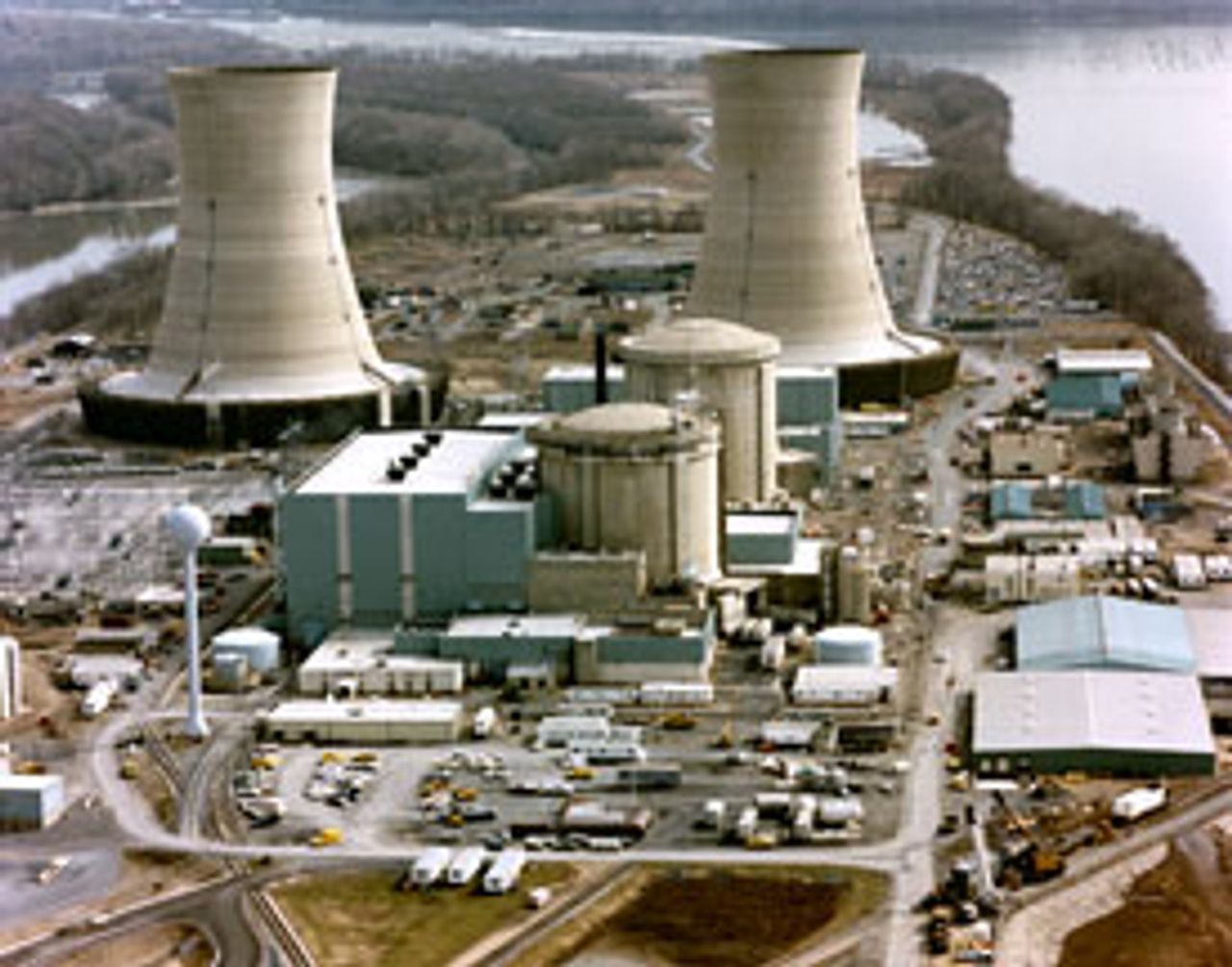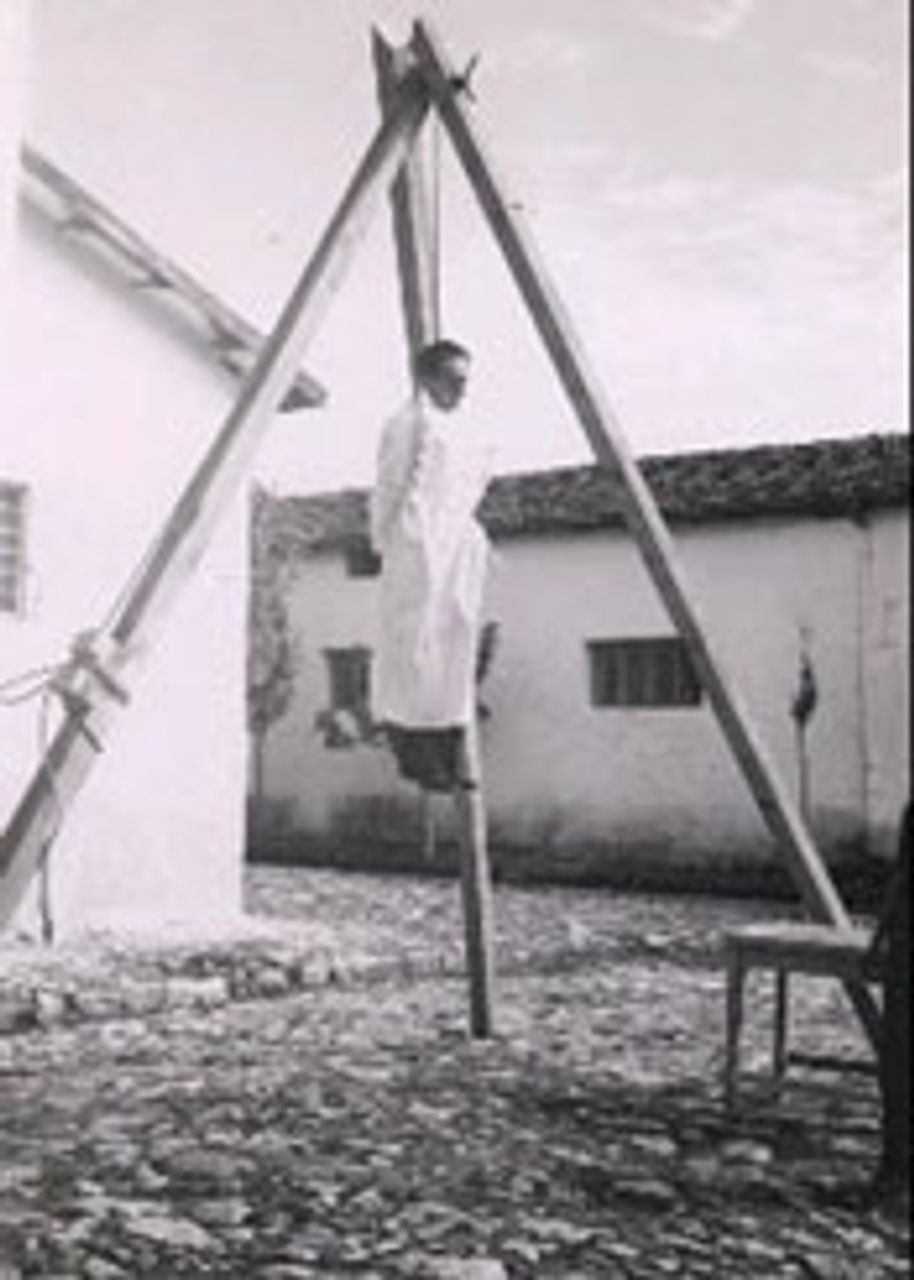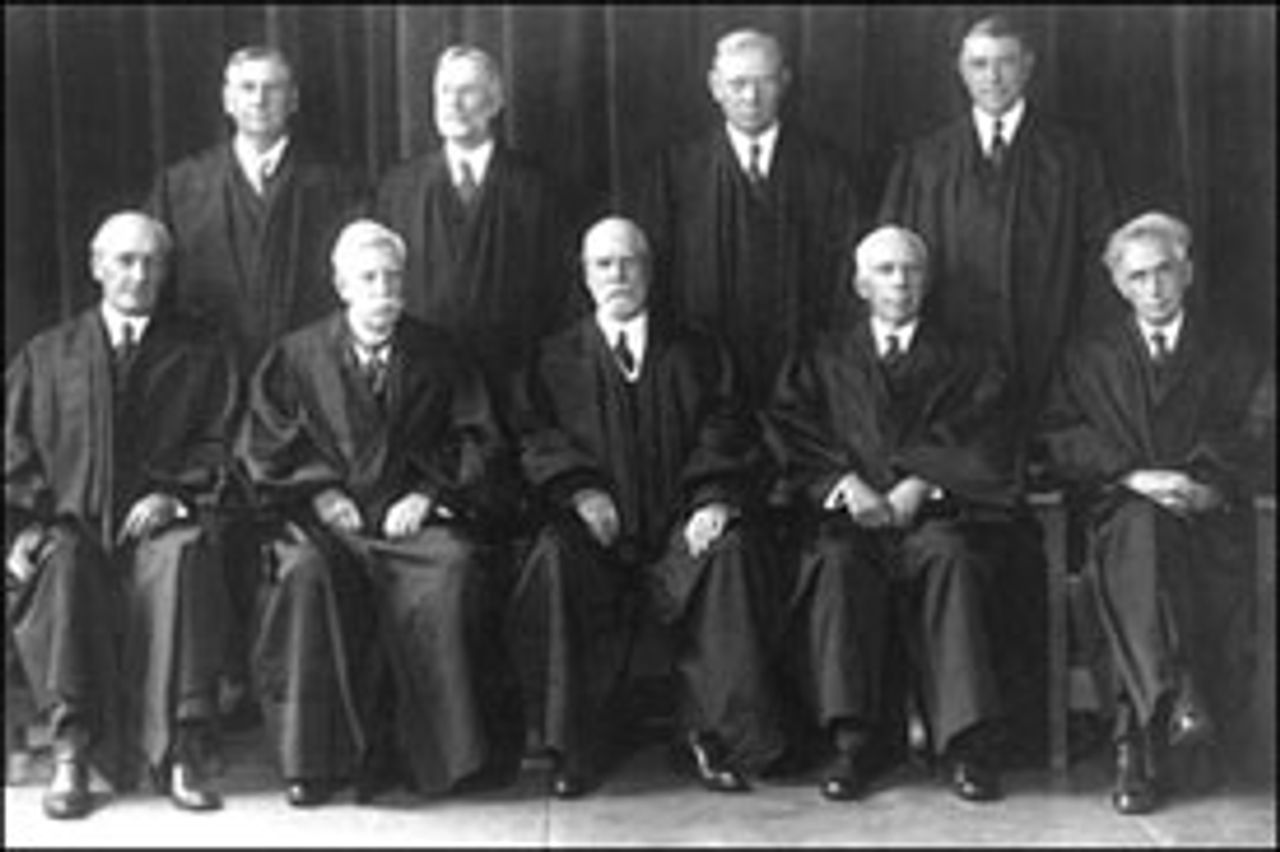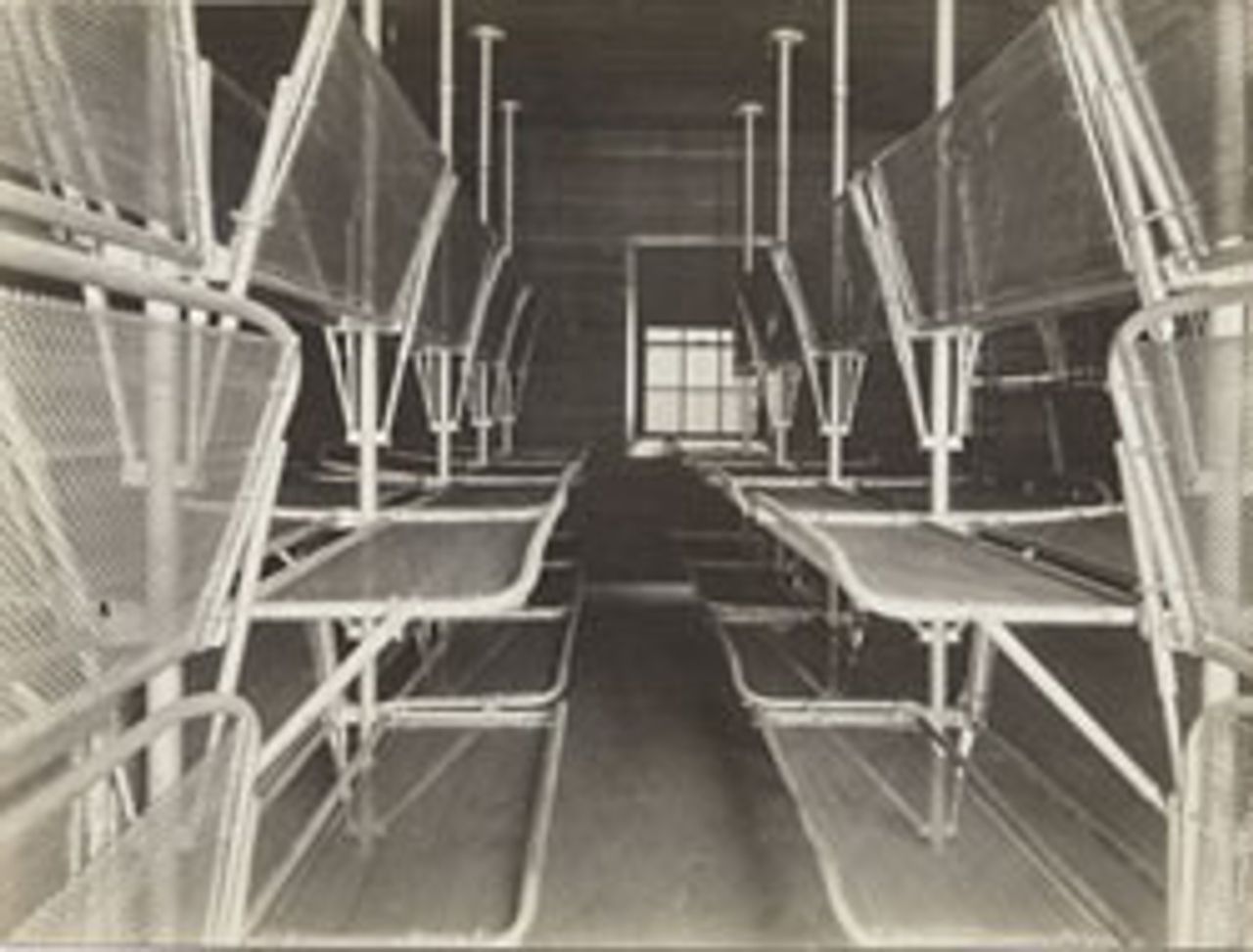This Week in History provides brief synopses of important historical events whose anniversaries fall this week.
25 Years Ago | 50 Years Ago | 75 Years Ago | 100 Years Ago
25 years ago: Nuclear reactor at Three Mile Island restarted six years after partial meltdown
 Three Mile Island
Three Mile IslandThe United States Nuclear Regulatory Agency (NRA) voted four-to-one May 29, 1985, to restart one of the reactors at Three Mile Island in south-central Pennsylvania, the site of a partial meltdown in 1979. That accident caused 80 petabecquerels (13 million curies) of radioactive noble gases to be released into the atmosphere. While highly toxic cancer-causing agent iodine-131 made up only a tiny fraction of the pollutants, a full-scale nuclear disaster was only narrowly averted. The cause of the near-total meltdown was attributed to a poorly designed industrial control system, which led to human error.
While the nuclear power industry claimed that no deaths or injuries resulted from the accident, the Radiation and Public Health Project reported a spike in infant mortality rates in communities downwind from the reactor in the two years following the accident. A study by a University of North Carolina professor found unusually high lung cancer and leukemia rates in these areas, but it was never established whether they were caused by the release of radioactive material, stress, or improved screening methods.
At the NRA meeting on May 29, the commissioners spoke of “renewed confidence” in the management of Three Mile Island, while audience members from the communities surrounding the plant shouted “murderer” and “killers.” Protests were held in Middletown, Pennsylvania, where Three Mile Island is located. Eighty-three people were arrested.
50 years ago: Turkish government overthrown in bloodless coup
 Adnan Menderes at the gallows
Adnan Menderes at the gallowsTurkish Prime Minister Adnan Menderes was overthrown in a bloodless military coup on May 27, 1960. He, along with President Celâl Bayar and members of his cabinet, was driven from office by a cabal of 37 of the country’s young military leaders, who then installed General Cemal Gürsel as head of state.
Menderes and several members of his government were given show trials on the island of Yassiada in the Sea of Marmara and sentenced to death for violating the Turkish constitution. Menderes was hanged in September of the following year. President Bayar’s sentence was commuted to life imprisonment, although he was released from jail in 1964 on grounds of ill health.
The coup was prompted by growing social unrest in Turkey, divisions within the ruling class and rising anger within sections of the military over Adnan’s efforts to rein in the increasingly vocal Kemalist opposition by restricting political freedoms. At the time, the Turkish economy was beset with high inflation and heavy debt. In April, the country’s universities were shutdown and students engaged in violent clashes with the police. The imposition of martial law on May 1 and the rounding up of demonstrators failed to bring the situation under control.
The coup led to the formation of a caretaker government, the Committee of National Unity, under the control of the military. The junta ruled until October 1961.
75 years ago: US Supreme Court rules National Industrial Recovery Act unconstitutional
 The Hughes court
The Hughes courtThe United States Supreme Court ruled the National Industrial Recovery Act (NIRA) unconstitutional on May 27, 1935. The unanimous decision was handed down during the case of Schechter Poultry Corp. v. United States, more popularly known as the “sick chicken case.”
Schechter Poultry of New York had been convicted in a lower court for violations of the Live Poultry Code, which was one of hundreds of industrial reform codes established under the NIRA. The Supreme Court dismissed the conviction, ruling that the federal government had overstepped its authority and violated the Commerce Clause in proscribing codes to regulate companies, such as Schechter Poultry, that did not operate on an interstate basis. The court also found the “code-making authority” granted to the President under the NIRA to be “an unconstitutional delegation of legislative power.”
Established under the authorization of President Franklin D. Roosevelt in 1933, the NIRA was one of the central New Deal social reform measures put in place to combat the crisis of the Great Depression. It provided for the establishment of codes of fair competition that would regulate the US’ industrial sector. It also set aside more than $3 billion for the creation of a public works project. The National Recovery Administration (NRA) was established to administrate the proposed reforms.
The NRA immediately halted code enforcement efforts in the wake of the Supreme Court ruling, as approximately 750 industrial reform codes were voided by the Court's decision. The May 27 decision was the latest in a series of rulings by the Supreme Court of Chief Justice Charles Hughes that overturned New Deal and other social reforms; defeats had already occurred in the cases of Panama Refining Co. v. Ryan and Railroad Retirement Board v. Alton Railroad Company.
100 years ago: Chinese-Americans call for boycott of US-made goods in China
 Dormitory at Angel Island detention center
Dormitory at Angel Island detention centerThe US-based Chinese Chamber of Commerce (CCC) called for a boycott of American goods throughout China on May 29, 1910. The CCC’s League of Justice issued the appeal to protest the creation of a detention center for Chinese immigrants on Angel Island in San Francisco Bay. Telegrams were sent by the organization to business associations across China requesting that they refuse to purchase US-made goods in an effort to pressure Washington to abandon its discriminatory practices.
The detention center at Angel Island was built to enforce the Chinese Exclusion Act of 1882. After the end of the California Gold Rush and the economic downturn that followed, the US government sought to strictly limit the number of laborers from China entering the country and whip up anti-Chinese sentiment. The law also prevented permanent residents from China already living in the US from receiving American citizenship.
Thousands of immigrants from China were held captive on Angel Island in prison-like conditions for weeks, months, and in some cases, years. Housed in cramped, communal quarters, separated from family members, and subject to interrogation, Immigration Station became synonymous with desperation and despair. Detainees scrawled poetry about their suffering on walls of the Angel Island barracks.
First opened in 1910, Immigration Station operated until 1940, when it was destroyed in a fire. The Chinese Exclusion Act was not repealed until 1943, after which a quota system was put in its place.
